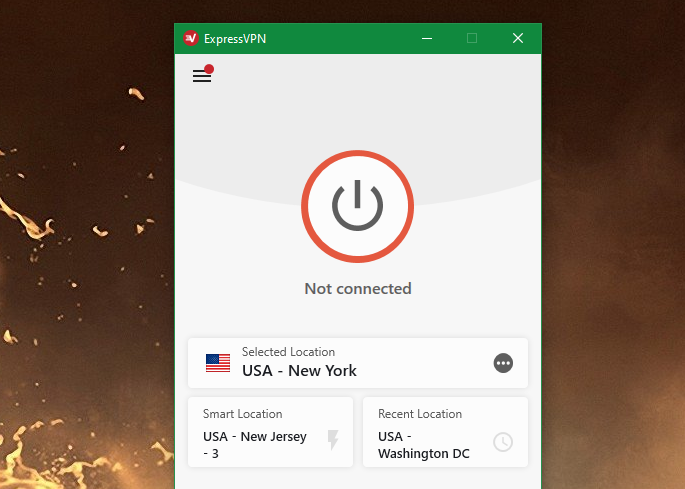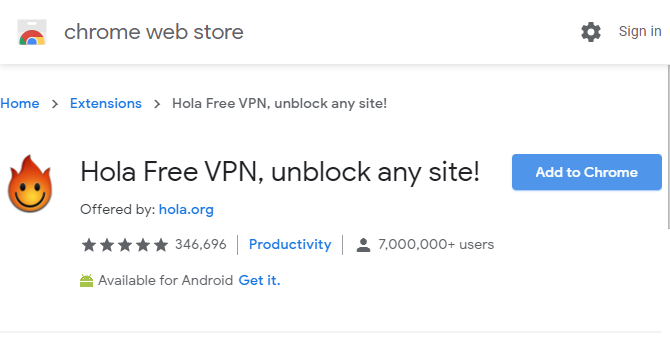A virtual private network (VPN) is a technology that allows your computer to securely connect to a remote server and appear as though it's actually in that area. While they're used in corporate settings to access onsite data, their most common use today is for regular users to get around geo-blocking and increase online privacy.
However, not everything you hear about VPNs is true. Let's look at some of the most common VPN myths and examine the truth so you aren't fooled.
1. VPNs Are Only for Advanced Users
If you don't consider yourself tech-savvy, you might hear about how VPNs affect networking and think that they're over your head. However, this isn't something you need to worry about.
Today's VPNs are extremely easy to configure. In most cases, they only require you to download an app for your VPN service, sign in with your account, and hit a button to connect. You don't have to configure complicated software on your own or anything like that.
2. You Only Need VPNs for Questionable Activity
One of the most common misrepresentations about VPNs is that you only need to use one when you're doing something of questionable legality. For instance, you might worry that it's wrong to access geo-restricted video content or circumvent legal roadblocks in your country, and thus turn to a VPN.
Although a VPN can help in these cases, it's not the only reason for using one. VPNs are designed to encrypt your communication, thereby securing what you do. When you're worried about the security of your current network, a VPN can provide extra protection.
Another good use case for connecting to a VPN is when doing something sensitive using a public Wi-Fi network. In case the network is compromised, connecting to the VPN secures your traffic so snoopers can't see it. VPNs can even be useful just for seeing what a website looks like for users in another country.
3. VPNs Are a One-Click Security Solution
Before we move on, this myth is important to dispel. You'll often hear from sponsorships and VPN companies that VPNs are a "one-click solution" for total privacy and security. This is not true.
VPNs allow you to mask your IP address, make it look like your traffic is coming from somewhere else, and can provide increased network security in some situations. But they can't protect you from falling for a phishing attack or your credentials being exposed in a data breach.
Also, with HTTPS encryption being standard across the web today, your credentials are already protected when you log in to a website like your bank—a VPN is just redundant security in this case.
You also don't get ultimate privacy from using a VPN. Your online activity is tracked by much more than your ISP—even if you're using a VPN when you log into Gmail, Google still knows where you live based on shipping receipts in your inbox, for example. Using a VPN doesn't erase years of online history that companies cross-reference to build a profile on you.
Thus, don't believe that VPNs provide you with absolute security and privacy from a single click. They're a useful tool in some situations, for sure. But you need to do a lot more to stay truly private online, and can still run into serious security issues. Your own common sense will protect you from threats more than a VPN does.
4. VPNs Drastically Slow Down Your Connection
You've probably heard that since VPNs route all your data through another far-off server, using one will slow your browsing speed significantly.
However, that's not entirely true. Using a VPN will slow down your browsing a bit due to the increased overhead, but with a solid VPN, this should barely be noticeable.
The overall speed of your VPN is limited to the speed of your own internet connection, so using a VPN can't make your connection any faster than it already is. More importantly, your speed when using a VPN heavily depends on the location of the server you connect to. The further the server is from you, the greater the latency and speed decrease.
It's thus important to choose a VPN service provider with lots of well-maintained servers in a variety of locations that help you get acceptable connection speeds.
5. A Free VPN Is Good Enough
While free software is often great, remember that you usually give up something else to enjoy services at no cost. In the case of VPNs, the tradeoffs likely aren't worth the risks.
There are some free VPNs that offer service at no cost, but they're usually accompanied by restrictions. It's common for free VPNs to have heavy limits on speed or restrict you to a certain amount of bandwidth usage per month. While there are unlimited free VPNs, they're the exception, not the rule.
However, it's probably not surprising to learn that a lot of free VPNs keep track of your browsing data and other personal information when you use their service. All VPN providers have to pay their server fees, so selling user data is a common way to do this in lieu of subscription costs.
To understand what you're getting yourself into with a VPN, always read the terms and conditions carefully. Remember that you get what you pay for; go with a premium VPN that you can better trust not to exploit your data.
6. All VPNs Are the Same
As you could probably guess from the above, not all VPNs are created equal. Using a VPN means that you trust all your online activity to it. Thus, like choosing which Wi-Fi networks you connect to, you should select a VPN service carefully so you're not exposing your private information.
Make sure you understand VPN protocols and pick a provider that offers modern options. Review the privacy policy to make sure that the company doesn't keep logs, so that it couldn't hand your browsing history over to the government even if forced to. And consider avoiding VPN services located in the Fourteen Eyes countries, which allow for deeper invasions of privacy.
You should also confirm what a VPN provider allows on its service. Some are fine with P2P downloads, while others will ban you for engaging in this activity. Make sure you know what the rules are so you don't get in trouble.
Know the Truth About VPNs
In reality, VPNs are a useful tool for some purposes, but you shouldn't believe these myths about them. People who want to access content from other locations or who often browse on networks they don't trust can get use from VPNs.
But not everyone needs a VPN, and they aren't a magic solution to online security and privacy issues. Now you understand what to expect from VPNs and can decide whether you need one.
Image Credit: Ksenia Palimski/Shutterstock



